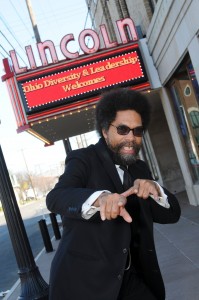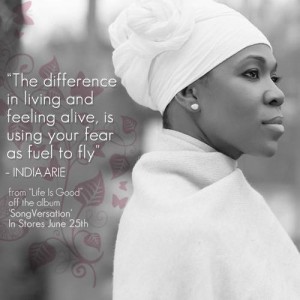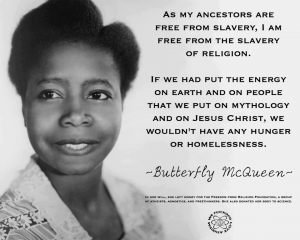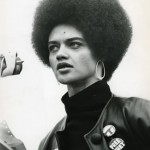Week two of this challenge has been equally as interesting, insightful, and revealing as week one. I am continuing to find very interesting, valuable and educational resources for understanding some of the layered levels of complexity within Black history and culture. I have also continued to post some of my personal accounts and thoughts on racism.
Here is the account of week two’s posts from my Facebook account. I found some really good videos this week and hope to continue to tap into the visual, academic and personal aspects of this journey. Enjoy!
June 1st:
Personal Experience with Racism #3: My husband’s mother had passed and the memorial was hosted at her house. I remember the intense sadness of us all, especially her family and my husband. Right before we were getting ready to eat… I found a seat on the couch. The only open seat left was next to me.
One of my husband’s family members came into the room. He was a much older gentleman with serious heath concerns, including serious mobility issues. If there hadn’t have been a seat open, I remember thinking I would have given him mine, but since there was one next to me, I was not worried.He walked into the room, stopped and scanned the seating options. I saw him frown…. walk over to the side and proceed to slowly lower himself to the floor. Several of the family members immediately told him to sit on the couch. He glanced his eyes to me, making eye contact, frowned his nose as if something smelled and said “no thank you”.
Several of the family members showed obvious embarrassment because they knew. It was no secret in the family how he felt about Black people, but no one expected him to be that forward. I remember the feelings of inferiority, embarrassment and sadness as I sat there in the memorial, as the now identified Black girl in the room.
Studies show that racism looks different today but is very much present. Many people assume we are in a post racial society, and we coulg not be further from the truth. What studies are showing instead is the mutation of racism from the overt kind to a more systematic and passive type of racism that is often hidden.
Aversive racism is a term that is used for the type of racism we see more often today in our interpresonal relationships, often hard to disect for those who are unconscious of its existence. I encounter good people who are aversively racist all the time. They don’t even see it….. We often student this type of racism in social work because of the way that it can be cripling for people of color because it is not on the surface racist, and in turn, people are making decisions that impact the lives of others….. with choices that are hidden underneath biases that are aversively racist. And so there is a place for those studies here. Too many people assume that Black people today do not encounter racism ALL THE TIME. But we do.
Why Can’t We Just Get Along? Interpersonal Biases and Interracial Distrust – “Our work has focused on one form of contemporary bias of Whites in the United States: aversive racism (Kovel, 1970). In contrast to “old-fashioned” racism, which is blatant, aversive racism represents a subtle, often unintentional form of bias that characterizes many White Americans who possess strong egalitarian values and who believe that they are nonprejudiced. Because of the central role that racial politics have played in the history of the United States, our work has mainly considered the influence of contemporary racial attitudes of Whites toward Blacks.
Nevertheless, we note that many of the findings and principles we discuss extend to Whites’ biases toward other groups (e.g., Hispanics) as well (Dovidio, Gaertner, Anastasio, & Sanitioso, 1992). Although we also acknowledge that minority groups may also hold negative attitudes toward majority groups and to other racial or ethnic groups, we have focused on the attitudes of Whites because they have traditionally held a disproportionate amount of political, social, and economic power in the United States. Thus, addressing and improving Whites’ attitudes can potentially have a significant effect on social change.
A critical aspect of the aversive racism framework, similar to the position of other
types of subtle biases such as modern or symbolic racism (McConahay, 1986), is the conflict between the denial of personal prejudice and the underlying unconscious negative feelings and beliefs. In contrast to traditional approaches that emphasize the psychopathology of prejudice, however, the negative feelings and beliefs that underlie aversive racism are hypothesized to be rooted in normal, often adaptive, psychological processes (see Dovidio & Gaertner, 1998; Gaertner & Dovidio, 1986). These processes involve both individual factors (such as cognitive and motivational biases and socialization) and intergroup functions (such as realistic group conflict or biases associated with the mere categorization of people into ingroups and outgroups). In contrast to the feelings of open hostility and clear dislike of Blacks, the negative feelings that aversive racists experience are typically more diffuse, such as feelings of anxiety and uneasiness. Because aversive racists consciously endorse egalitarian values and deny their negative feelings about Blacks, they will not discriminate directly and openly in ways that can be attributed to racism. However, because of their negative feelings, they will discriminate, often unintentionally, when their behavior can be justified on the basis of some factor other than race (e.g., questionable qualifications for a position).Aversive racists may therefore regularly engage in discrimination while they maintain a nonprejudiced self-image. The term aversive in this form of racism thus refers to two aspects of this bias. It reflects to the nature of the emotions associated with Blacks, such as anxiety,which lead to avoidance and social awkwardness rather than to open antagonism. It also reflects the fact that, because of their conscious adherence to egalitarian principles, these Whites would find any thought that they might be prejudiced to be aversive.”
Dr. Joy DeGruy-Leary • Post Traumatic Slave Syndrome (Full Lecture)
YAY!!! Someone just uploaded a NEW ONE that is really good… and complete. A FULL LECTURE OF DR. JOY DEGRUY!!! If you want to hear it… from the woman herself….. she is powerful, trail blazing and profound beyond belief. This one appears to be from 2004, even thought it was just uploaded. And so some of the stories are different than more recent recordings.
“And then I realized what happened in South Africa was rather unique, it was very unique. South Africa had to own it, because the world watched. Other nations stood up and said, ‘this isn’t OK what you are doing’. So south Africa had to own it, they had to say I’m sorry to the world for apartheid. They had to say I’m sorry to the entire world, and they did, they owned it. They said, ‘we did it, I’m sorry, please come back and bring your money’.
So South Africa owned it, but America’s pathology is her denial. It is why we have to have the conversation, it is why we can never agree on what’s going on, it is why we are so angry, and why some of us are so afraid. It is because of the denial.” Dr. Joy Degruy.
Good News in Mississippi: School-To-Prison Pipeline Closed – COLORLINES
It is nice when we hear that some actions are being taken to combat the covert racist actions of those within school systems and other structures that can be used to hide functioning oppression. We have to keep fighting for this post-racial society that we want to live in, because it is not the world we live in today.
“This consent decree essentially cancels most, if not all, police intervention for any issues that ca be “safely and appropriately handled under school disciplinary procedures.” This includes: disorderly conduct, school disturbances and disruptions, loitering, trespassing, profanity, dress code violations, and fighting that doesn’t include physical injury or weapons. Further, the school district can not share any information on students’ discipline records with any law enforcement agency unless court-ordered. It also requires schools to track discipline data, including by race, and then take corrective action if they find racial disparities.Last month, Jocelyn Samuels, deputy assistant attorney general for DOJ’s civil rights division, told Hing that Meridian “is just the tip of the iceberg,” and that this consent decree could be a model for tackling the national problem of excessive punishment of black students.”
http://colorlines.com/archives/2013/05/good_news_in_miss_school-to-prison_pipeline_closed.html
June 3:
Shit White Girls Say…to Black Girls
And now for a laugh. This video is pretty damn funny to me… mostly because I think I have heard 99.5% of these things said in real life. Um… and the touching my hair thing… so not cool. And while it makes me laugh, the reality is that this is the kind of commentary that is just so…. (sigh). enjoy!
Personal Experience with Racism #4:
About two years ago I was still working in a school in West Oakland and we had an incident with a student seriously assaulting another student with a desk. The police were called and came to the scene.The police officer that came was one we knew from his behavior before… he was often assigned to the school response team for us. He came into the school and immediately was very critical of the situation. He appeared to do the investigation and decided he had no violation to take action against the boy, even though there was physical damage to the young girl.
In response to our confusion, the officer gave us this explanation:
Because of where he is and how people like him act…. it is no different than others like him. Now, if he lives in Montclair (a upper class white neighborhood in Oakland) then this would be uncharacteristic and I would detain him.
So we asked if that meant that because he was Black and in West Oakland, this behavior was “legal”? He kind of shrugged his shoulders, smiled and left.
Thoughts: I am often subjected to the internalized racism of the Black community because of the light color of my skin. I often think about how that is directly linked to the perceptions of self that we have received from our historical oppression and the ideas of race equality that have been ingrained in us from our past. it is not secret that the darker a slave was, the more likely to be placed in the fields instead of in the house. It is why the “white is right” train of thought filtered to the way we often look at ourselves, or compare ourselves.
This translates to our image of our hair being “bad”, skin being too dark, light eyes being prettier, and proper speech being “talking white”. It is the comparison of what is right or good being based on a baseline of what is White.
And so it makes sense that I would get a lot of focus from my fellow black people about being “high yellow”. And there are plenty of lighter skinned Black people that internalize that they are prettier because they are lighter, I am not one of those though. Being lighter helped me (privilege) get into a lot of social circles that I would often be left out of (“you are different than other Black people”) but it was always a reminder of the injustices of rape on my ancestors. I didn’t create a sense of self hatred about it, but it was a reminder.
And so… while we are going through this 30 day challenge, I want to point out some of the internal beliefs that linger in the background of our culture because of our ancestral past… and also point out to others of color that we don’t have to carry those traumas with us anymore. We don’t have to unconsciously judge ourselves and our people of color by some ridiculous notions ingrained by our past oppressors. We can make those thoughts conscious and then disspel them.
Not only does this piece address some of the psychological damage of slavery on African Americans, it discusses correlations with mental health disorders, socioeconomic status, self esteem and internalized racism. Some impactful thoughts in this piece around how the damage is so present today in the psyche of African Americans.
“The impact of internalized racism has also had an effect on African Americans’ mental health. For some African Americans that contributes to their perceived inferiority, and they tend to experience anxieties and reactions that affect their social and psychological functioning (Williams & Williams-Morris, 2000). Some studies have found a positive correlation between internalized racism and alcohol consumption.
Other studies have revealed that the stigma of inferiority can negatively affect one’s self-efficacy and confidence in performing various tasks. This concept applies to both race and gender. McCorkle’s (1991) research disclosed that the victims of internalized racism typically experience lower self-esteem and lower ego identity. Furthermore, this study disclosed that the children of mothers who score high on internal racism experience low sociological-emotional development.
Further, Delgado (1998) posited that internalized racism can affect very young children. In a recent study of 4-year-old African American preschoolers, approximately 75% of them preferred to play with their European American peers over their African American peers.Additionally, over 50% of them articulated their feeling of inferiority to their European American counterparts. In essence, one can infer that internalized racism is potentially more harmful than institutional racism due to the profound psychological and mental effects.”
June 4th:
Personal Experienced with Racism #5: One day I was walking downstairs in my home and about to walk into the kitchen when I heard a guy talking to my hubbie’s dad. He asked him, “How many Niggers does it take to screw in a light bulb?” Right at that moment I walked into the kitchen and his smile quickly turned into a blank stare. He turned around and walked out.
I can’t remember if I actually asked him how many, or if that was just what I said in my head. And until this day… I still never found out how many it took. Last I checked, I screwed in light bulbs by myself.
Another source of information regarding aversive racism. This is an actual study to point out the way that selection (jobs and the such) are impacted by biases and stereotyping of Black people. Very interesting study.
(Courtesy of sister Shellee Fisher Davis)
Cornel West is one of the most prolific academics of our time. If you don’t know who he is… I can give you a quick snapshot and then I encourage you to do more reading about this incredible man. Two BA’s at Harvard, Ph D. at Princeton, and has taught as a professor at Yale, Harvard, Union Theological Seminary, University of Paris and just retired from Princeton. Wow….. Author of like 20 books and an incredible activist.
His words are always humbling to me. (I am a true fan). And so here are some quotes I found tonight that I find to be so powerful for my life, mission and the journey I sharing for the 30 day Challenge. Enjoy!
• I pray that you allow yourself to wrestle with these questions — about the quality of your love and the depth of your service to humanity.
• Our society as a whole suffers from historical amnesia.
• The only countermovement against catastrophe and trauma is never forgetting the catastrophic and yet still attempting to triumph.
• It’s critical to understand your history, and then be true to oneself in such a way that one’s connection to the suffering of others is an integral part of understanding yourself.
• It takes courage to interrogate yourself. It takes courage to look in the mirror and see past your reflection to who you really are when you take off the mask, when you’re not performing the same old routines and social roles. It takes courage for folk to stand up. Bless you… – Cornell West
Effects of Slavery Still Reverberate Today, Scholar Says
Two profound statements in this short review of a speech by Annette Gordon-Reed, Ph.D. This Dr. Gordon Reed is the Charles Warren Professor of American Legal History at Harvard Law School, professor of history at Harvard, and the Carol K. Pforzheimer Professor at the Radcliffe Institute for Advanced Study….. hence she has a lot of respect in the community as a historian and academic.
“This is an opportunity to show that when African-American people tell you what happened in slavery, that it’s truthful, and you should pay attention to it.”
“African-American enslaved people were the only people who I think were made to prove beyond a reasonable doubt the things that happened to them in slavery,” she said. “The sympathy always tended to be with the people who were in power, that is to say southern slaveholders, doing things to make their descendants feel less guilty about what went on. ”
South Dakota commits shocking genocide against Native Americans » peoplesworld – www.peoplesworld.org
And it is still happening in the native community too…. We are legally still restricting resources, and stripping culture from those who do not fit the American ideal. We just hide it behind the law today…..
http://www.peoplesworld.org/south-dakota-commits-shocking-genocide-against-native-americans/
June 5th:
Mitchell: ‘New Jim Crow’ incarcerations raise uncomfortable questions – Chicago Sun-Times – www.suntimes.com
Michelle Alexander is a civil rights attorney and the author of the book “the New Jim Crow; Mass Incarceration in the Age of Colorblindness”. Her groundbreaking work in the judicial system is bringing together a set of data that is often ignored by general society…. under the assumption that laws are fair and that imprisoned people are bad. Correlating some of the new laws, aimed at people of color, to those of the Jim Crow era is hard for some people to hear. But data speaks for itself and the prison industrial complex is creating a systematically oppressive system that arrests and ties people of color to second class citizenship in rapid fashion.
While we all want to believe that the Jim Crow of the past is dead…. he is alive and well, hidden in modern day policy.
“These young people come home “saddled” with criminal records that follow them for the rest of their lives and “authorize legal discrimination” against them, Alexander points out.
In her book, Alexander describes a system that so closely resembles the conditions blacks faced during Jim Crow, it’s hard to ignore the similarities.For instance, when someone serves his or her time but cannot find gainful employment or, in some cases, even housing, what are they supposed to do? They can’t get in a time machine and make different choices. These young people become second-class citizens for much of their lives.
“The systematic mass incarceration of poor people of color in the United States has emerged as the new caste-like system,” Alexander told a room filled with lawyers, prosecutors, public defenders and politicians.
“One that shuttles young people from segregated neighborhoods, decrepit under-funded and failing schools to brand new high-tech, thriving prisons.” – Michelle Alexander.
Personal Experience with Racism #6: After the transition from one coven to another, one of the members that transitioned with me was a bit… disconnected most of the time. I did not have a good relationship with her per se and we didn’t really have much in common besides our Pagan association.
She found it necessary to email me one day to tell me how much she disliked me. I was shocked by the email but what shocked me the most was that she did not like that I talked about being black. In her letter she said, ” I don’t like the fact that you bring up the fact that you are black..I have eyes, I can see. The problem I have with it that you bring it up all the time.”
I often wonder why that is so offensive to some people. The same as me mentioning that I am a woman, mother, counselor, or writer…. all of those things are such important parts of who I am that I cannot separate them out. So why does mentioning my ethnic culture become so problematic? A question that lies in the middle of cognitive dissonance and aversive biases.
June 6th:
I have been thinking about how interesting it has been to write incidents of racism that I have encountered, how it has impacted me to re-live some of those experiences that are often dismissed in our mind. What I find to be complex and yet insightful, is how we are conditioned to cope with incidents of racism or prejudice because it is normal for people of color and other marginalized groups. It is not something that we are raised to think we are immune from, it is often quite the opposite.
Which leads me to an interesting couple of thoughts.
1. Black people (and other people of color) do not have the luxury of believing that there is a such thing as colorblind. We know, from the moment we enter society, that our differences are worn on our face, our features and in our hair. Only those who belong to the “baseline” group can have that luxury.
2. There are so many incidents of overt and covert racism that happen for the average Black person (or person of color) that many of the incidents fade into the background of our experiences, becoming a normal part of the fabric of our being. If asked how many times I have been subjected to racism, I couldn’t count because I don’t remember them all. Many times they have been dismissed as just “life”.
3. Being subjected to racism does not just come from outside of the Black community. We get it on both ends. We also get the intra-Black racism that is really a form of projected self hatred. It is the “crabs in a barrel syndrome of hating one another because we were taught (through history and society) to hate ourselves. When we reject who we are, we reject what we are too…. and everything that resembles us.
4. There is an ongoing dilemma for Black people in figuring out how to prepare their children for the injustice, racism and harsh reality of being a Black person in America. Finding the balance between preparation and instilling fear is one that can be a mystery for many of us in the parenting arena. But the opposite would be neglectent, ignoring the realities of race relations in our country and then hoping our children do not have to face it. I still remember when my son ran home crying that he was just called a Nigger in the park, it most likely will happen to our babies.
5. I am lucky. My incidents of racism or prejudice are small compared so some that others have experienced. My light skin, my California location and my education has helped me to avoid some of the experiences that others have had. I do not think my experience is equal to all Black people and feel quite lucky that I have not had to endure what I know others have.
And so while I am just spending some time being introspective in my journey, I can’t help but think about how much I see, experience, feel and hurt behind those very incidents that many people will never have the ability to experience for themselves
I remember this from when it originally aired. Jon and I just watched again. sometimes it helps to see aversive racism or racial profiling in action to believe it.
realitiy matters The shadow of trauma on African American subjectivity.pdf
Very interesting research and theory on the effects of slavery as trauma on African American’s subjectivity.
“African American subjectivity is marked by trauma. I use the term broadly, to include the life-disruptive quality denoted by post-traumatic stress as well as the developmental trauma found within the family. The trauma may be explicit and conscious, or unavailable to awareness. It may come from the society at large, as in racist acts of oppression or discrimination, or from the nuclear family. And it may be the result of trauma generationally transmitted. But infusing and determining both intrafamilial and societal traumatic acts is the historical fact of slavery.
The first diagnostic criterion for posttraumatic stress disorder is the “experience[ing],
witness[ing], or confront[ation] with an event or events that involved actual or threatened death or serious injury, or a threat to the physical integrity of self or others” (American Psychiatric Association, 1994, p. 427). There is little in slavery that was not traumatic: the loss of culture, home, kin, and attendant sense of self, the destruction of families through sale of fathers, mothers, and offspring, physical abuse, or even witnessing the castration of a fellow slave. Yet subjugation was its most heinous aspect, as it sought nothing less than annihilation of that which is uniquely human—the self.”
PANTHER ( 1995 ) Full Length MovieSCORE!!! One of my favorite movies of all time, and just found it on youtube. I think it is also available on Netflix. If you have not seen it, you should. It is a bit polished, and Hollywood for sure, but much of the accounts of this movie are based in truth. The story of Dredge is fabricated, but the rest…… It is a good way to learn about the Panthers if you don’t know.
http://www.youtube.com/watch?v=C8XRVJSebXE
Talking about race pushes people past the mask and into a place of true reveal of the self. I am appreciative tonight to learn about my friends, past and present, so that I may know who are truly people of integrity and those who just pretend to be. Someone I use to consider a friend encouraged me to start this 30 day voyage, to share some of the knowledge I have been researching and discovering. And now that we are no longer friends, I am grateful to know that today I stand in a place of learning… in a place that refuses to accept the crap fed to me by a stripped down version of history and CHOSE to learn. I will not reinforce ignorance through silence.
And those who I want as my friends will understand that. Tonight I am grateful to grow beyond friendships that no longer serve me. I wish the same for everyone.
June 7th:
Personal Experience with Racism # 7: I was with a couple of Pagan friends in a small town called Martinez. This is a cute town, that is middle class life and on the water. It is a beautiful place. We were going in to get some ice cream at Baskin Robbins.
Right as we had crossed the street a car with several younger white guys drove past. They were obviously in the young and overly special phase of their lives. As they drove back, they yelled out the window at me, “Oakland is over there, Go back to Oakland”. I guess I wasn’t suppose to eat ice cream in Martinez with my two Pagan friends who were not Black.
We laughed it off, and commented on how stupid “kids” are…. kind of the same way that a person laughs when they fall and scrape their knees. It is the kind of laugh that deflects from the sharp stabbing pain. (by the way, they are so stupid… I am not even from Oakland).
Why Can’t We Just Get Along? Interpersonal Biases and Interracial Distrust –
“Our work has focused on one form of contemporary bias of Whites in the United
States: aversive racism (Kovel, 1970). In contrast to “old-fashioned” racism, which is blatant, aversive racism represents a subtle, often unintentional form of bias that characterizes many White Americans who possess strong egalitarian values and who believe that they are nonprejudiced. Because of the central role that racial politics have played in the history of the United States, our work has mainly considered the influence of contemporary racial attitudes of Whites toward Blacks. Nevertheless, we note that many of the findings and principles we discuss extend to Whites’ biases toward other groups (e.g., Hispanics) as well (Dovidio, Gaertner, Anastasio, & Sanitioso, 1992). Although we also acknowledge that minority groups may also hold negative attitudes toward majority groups and to other racial or ethnic groups, we have focused on the attitudes of Whites because they have traditionally held a disproportionate amount of political, social, and economic power in the United States. Thus, addressing and improving Whites’ attitudes can potentially have a significant effect on social change.A critical aspect of the aversive racism framework, similar to the position of other
types of subtle biases such as modern or symbolic racism (McConahay, 1986), is the conflict between the denial of personal prejudice and the underlying unconscious negative feelings and beliefs. In contrast to traditional approaches that emphasize the psychopathology of prejudice, however, the negative feelings and beliefs that underlie aversive racism are hypothesized to be rooted in normal, often adaptive, psychological processes (see Dovidio & Gaertner, 1998; Gaertner & Dovidio, 1986). These processes involve both individual factors (such as cognitive and motivational biases and socialization) and intergroup functions (such as realistic group conflict or biases associated with the mere categorization of people into ingroups and outgroups). In contrast to the feelings of open hostility and clear dislike of Blacks, the negative feelings that aversive racists experience are typically more diffuse, such as feelings of anxiety and uneasiness. Because aversive racists consciously endorse egalitarian values and deny their negative feelings about Blacks, they will not discriminate directly and openly in ways that can be attributed to racism. However, because of their negative feelings, they will discriminate, often unintentionally, when their behavior can be justified on the basis of some factor other than race (e.g., questionable qualifications for a position).Aversive racists may therefore regularly engage in discrimination while they maintain a nonprejudiced self-image. The term aversive in this form of racism thus refers to two aspects of this bias. It reflects to the nature of the emotions associated with Blacks, such as anxiety,which lead to avoidance and social awkwardness rather than to open antagonism. It also reflects the fact that, because of their conscious adherence to egalitarian principles, these Whites would find any thought that they might be prejudiced to be aversive.”
America was scared of the Black Panther Party for Self Defense…. and they should have been, because the Panthers intensified our need for justice in this country. It made the idea of freedom tangible in the West… and that spread to all over the Nation. They were the next leg of the revolution.
And so they spread the rumors and lies to discredit the Panthers and pump fear into the American people. But who were they really? Who were Bobby Seal, Huey P. Newton, Eldridge Cleaver, Little Bobby Hutton, Angela Davis, Kathleen Cleaver, Shakur and the other afro wearing revolutionaries? College students? Regular citizens? Black people who were tired of the police killing innocent black people on the streets of the Bay….?The time is now. Education is free if you look for it. Freedom comes with a price, the struggle for justice did not die with a gunshot on the streets of West Oakland where Huey died. Or where Malcolm or King died. They paid the price with their lives so that we had the chance to learn our TRUE history… and with knowledge comes the power to change this society to one that we deserve.
June 9th:
LIFE IS GOOD!!!!
SongVersation Lyrics…. June 25th!
I am learning to fly. I am learning to use my fear as fuel… and I think I might be flying, even if it is just a little bit. Thank you India for reminding me.
Who Taught You to Hate Yourself?
Warning: This video is hard. It is straight forward, and it is harsh. It might be perceived to have an bit of a “militant” or angry tone, but in reality that is just passion for the fight against oppression. (I have issues with the automatic assumption of militant or angry but now is not the time for that).
This video made me cry and I had to stop it about 6 minutes in to regroup…. because it is so true, and it struck a cord within me. As a currently transitioning haired, Black, “high yellow” woman, this video confronts all of the messages that have infiltrated my psyche as a child. And I see it EVERYDAY in the schools. Girls who do not see themselves as beautiful, or worthy, or worthwhile… or deserving of love.
It is the damage of years of covert and overt messages against Black as beautiful. It is all around us, in the media, in the clothes that are not made for our bodies, in the lack of resources for our hair, in the commercials and the TV shows. We are immersed in a world that shows “White is right” and then we can’t understand why our young Black children struggle to feel important, loved, beautiful or whole.
It is hard to watch but if you want to understand a glimpse into the complexity of the psyche of black beauty, the damage of slavery on the schema of Black people, the catalyst for some of the current self destruction of our people…. then take a chance and watch it all the way through.
“That child grows up with a concept that God is a Caucasion….. and if God is a Caucasion in a world such as this? In a world such as this???…. In a world that has been set up on the dialectical operations between Black and White, then the child automatically understands that if this is God represented by White, then I must be the opposite… represented by Black. And then you wonder why your three year old talks about how ugly she is, as beautiful as she is. You wonder why they start telling you at 5, “Momma I want my hair straightened”. You wonder why they begin to start coming into your room like coxy with white flower or powder, baby powder, all over their faces; talkin bout, “Mama, isn’t this color pretty?” Because you have worked to build insanity into the minds of your children”.
Reparations for Slavery – www.psychologytoday.com
We cannot have a discussion of the damage of slavery without looking at the concept of reparations for descendants of slavery. This is often a hot topic, and I am not interested in arguing it actually. But I think there are some really valid things pointed out in this article in Psychology today, mostly because it talks about moral obligations for willful damage.
Often times when we look at this in society, and people get all out of sorts, it is based in a disagreement that society should pay for something that happened so long ago. But this article approaches it from a standpoint that falls in line with the other examples of when reparations have been paid, and why the US would be MORALLY responsible to do so here. Interesting thoughts…
“If you ask any fair-minded person about the greatest injustices perpetrated in and by the United States, slavery would surely be at or near the top of the list. Many arguments have been given in support of the claim that there should be reparations for slavery, and some of them are better than others. Here, I will give one sound argument—The Compensation Argument—for the claim that the U.S. government is morally obligated to pay reparations for slavery. This argument is based upon facts that are not in dispute and on assumptions that all reasonable people share. That is, the argument depends on principles and data accepted by liberals and conservatives, by advocates of and opponents to reparations, and as such it should be acceptable to all who give it a fair hearing.
The Compensation Argument is as follows:
(1) If a government wrongfully harms someone as a result of the authorized actions of some of its public officials, then it incurs a moral obligation to compensate its victims for those harms.(2) The U.S. government wrongly harmed previous generations of Africans and African-Americans by supporting slavery and its aftermath.
(3) These acts of the U.S. government continue to cause harm to the currently living generation of black Americans.
(4) The U.S. government has not yet fully compensated the currently living generation of black Americans for the harms they continue to experience as a result of slavery and its aftermath.
Therefore, the U.S. government is morally obligated to pay reparations for slavery.”
http://www.psychologytoday.com/blog/ethics-everyone/201302/reparations-slavery
Dave Chapelle: Black people and Chicken!
Comedy has a way of bringing forth the most horrific things and allowing us to process through laughter. Dave Chappelle is one of those comedians for me. He infuses so much racist experiences in his stuff and does it in a way that I can identify with and laugh through. I appreciate him for that. Here is one that is pretty good.
When there is a chance to share knowledge, information, education and insight…. maybe we should look at that as our duty. Instead of it not being our problem, we should see how society is our problem. And the miseducation, ignorance and brainwashing of society IS our problem. It will become our children’s problem. We all are responsible for spreading truth, light and hope for a better future. One that allows our history to be told and our future to be chosen.
People often do not understand why friendships mimic family to me. The idea that kinship relatives are just as important as blood relationships. Many people I have had relationships with have no correlation for this, no understanding. And in explaining that often times it is cultural does not help. Maybe this does.
The effects of slavery on African Americans changed the way that they relate to “family” as a culture. Creating family became a necessity for survival due to the destruction of their families when they were ripped apart by the system of slavery. They created family with other slaves in order to have a network of support. That network replaced family in the traditional sense, and it became the family that they relied on to live, love and survive. And while plenty of people might find they have a kinship uncle or aunt… ours is a legacy of cultural survival that is enmeshed with our beliefs of the family system.
“It is important to define “family” as it has been used by African Americans. Scholars generally agree that since the beginning of slavery in the United States, African Americans have viewed their families in terms of kin networks. These kin networks formed the social basis of African-American communities.
Slaves were often forcefully removed from their families. They adapted to their circumstances by creating family units with other slaves with whom they lived and worked. Slaves conferred the status of kin on non-blood relations, addressing each other as brother, sister, aunt, or uncle. Slave parents taught their children to address all older slave men and women by kin titles, a practice that bound them to these adults and prepared them in the event that sale or death separated them from their own parents and blood relatives. kin networks to help them raise their children and understood that at any time, they may also need to assume the role of “aunt” or “uncle.”
A black freedwoman remembered her uncle asking, “Should each man regard only his own children, and forget all the 5 others?”
Thanks to Luna Pantera for posting this this morning. She played the role of the maid in Gone with the Wind. And the quote is fantastic.



















